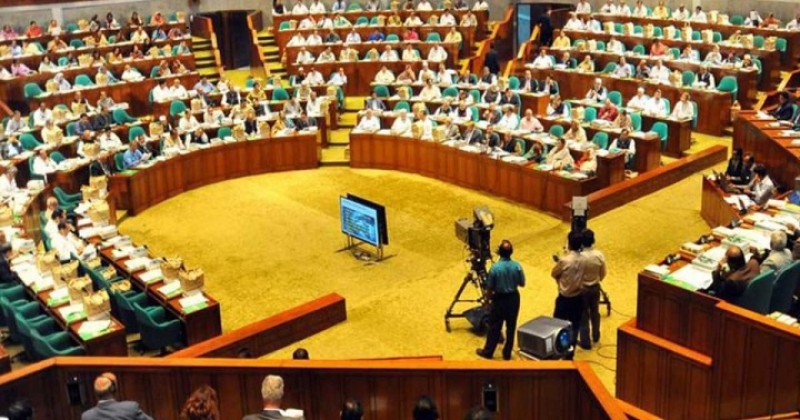- Xi unveils vision for equitable global governance, rejects unilateralism |
- EU Warns Xi-Putin-Kim Alliance a Challenge to World Order |
- Matarbari Project Set to Create 2.5m Jobs, Boost Economy |
- 4,000 ASIs to Be Recruited Ahead of Polls, Says IGP |
- World Heritage Sites Face Rising Water Risks from Climate Change |
Parties Must Harp on Consensus Over Confrontation for Reform

Parliament in session
As Bangladesh stands at a pivotal juncture in its democratic journey, the work of the National Consensus Commission offers a rare and vital opportunity to reshape the nation’s constitutional and political architecture. After months of dialogue involving over 30 political parties, the Commission has achieved notable breakthroughs—reinstating the non-partisan caretaker government system, proposing a bicameral legislature, and endorsing judicial independence through a separate Supreme Court Secretariat. These are not mere technical adjustments; they are foundational steps toward a more inclusive, accountable, and resilient democracy.
Yet, despite this progress, discord persists. Parties remain divided over the formation and tenure of the caretaker government, the composition of a proposed National Constitutional Council, and the limits on executive power. These differences, while legitimate, must not derail the momentum of reform. It is imperative that political actors concentrate on the areas of agreement and parry those on which consensus remains elusive. Reform is not a one-time event—it is a living process that evolves with the aspirations of the people and the maturity of the political system.
Every political party has its own vision for reform, shaped by ideology, constituency, and historical experience. These visions enrich the national discourse and should be pursued within the bounds of democratic competition. However, no party should insist that its blueprint be adopted wholesale by others. The spirit of reform must be collaborative, not coercive.
Equally troubling are ultimatums that threaten to boycott elections unless specific demands are met. Such rhetoric undermines the very essence of democracy, which thrives on participation, negotiation, and compromise. Elections are not bargaining chips—they are the lifeblood of representative governance. Political parties must rise above zero-sum tactics and embrace mutual accommodation for the greater national good.
The Consensus Commission has laid the groundwork. Now it is up to the political leadership to demonstrate maturity, foresight, and patriotism. Let them rally around the reforms already agreed upon, continue dialogue on unresolved issues, and commit to a democratic process that reflects the will of the people—not the rigidity of partisan agendas.
Bangladesh deserves a constitutional framework that is both visionary and pragmatic. The path forward lies not in perfection, but in progress. Let reform be a shared journey, not a contested battleground.

